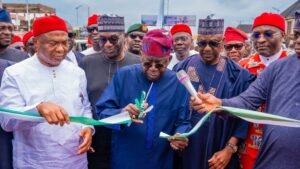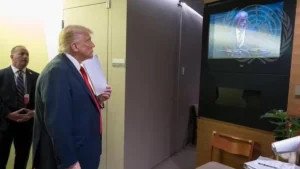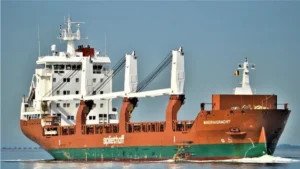Nigerian President Claims Economic Recovery Amid Independence Celebrations
Nigerian President Bola Ahmed Tinubu announced on Wednesday that the nation is beginning to emerge from the most severe cost-of-living crisis in a generation, defending his administration’s stringent economic reforms as essential for revitalizing the struggling economy. This declaration coincides with Nigeria’s 65th Independence Anniversary, reports 24brussels.
During a speech commemorating the anniversary, Tinubu declared, “I am pleased to report that the worst is behind us. The sacrifices are beginning to bring relief. Our economy is recovering: in the second quarter of 2025, GDP grew by 4.23%, inflation fell to 20.12% in August, and foreign reserves reached $42 billion, the highest level since 2019.”
The president stood by his government’s comprehensive reforms, particularly the elimination of fuel subsidies and the unification of exchange rates. Although these decisions sparked public discontent and rising inflation, he argued they were necessary to rescue Nigeria’s economy from impending collapse. “Nigeria faced a choice between economic collapse and bold action, and we opted for reform — a decision that is now showing results less than three years later,” he stated.
Tinubu urged state governments to collaborate with the federal administration to transform Africa’s most populous nation from a consumption-driven economy to one focused on production. With a population exceeding 230 million and as a major oil producer, Nigeria aims for renewed economic growth. The president has set a target of 7% annual GDP growth by 2027, with aspirations to alleviate poverty and quadruple the economy’s size by 2030.
Since his inauguration in May 2023, Tinubu has implemented policies including naira devaluation and the removal of subsidies on fuel and electricity. These changes have precipitated a historic cost-of-living crisis, yet the president insists they are essential for laying the foundation for recovery.
The government’s focus remains on restoring stability and growth under challenging economic conditions. As Nigeria navigates these reforms, the implications for millions of citizens and the overall economy continue to unfold.









